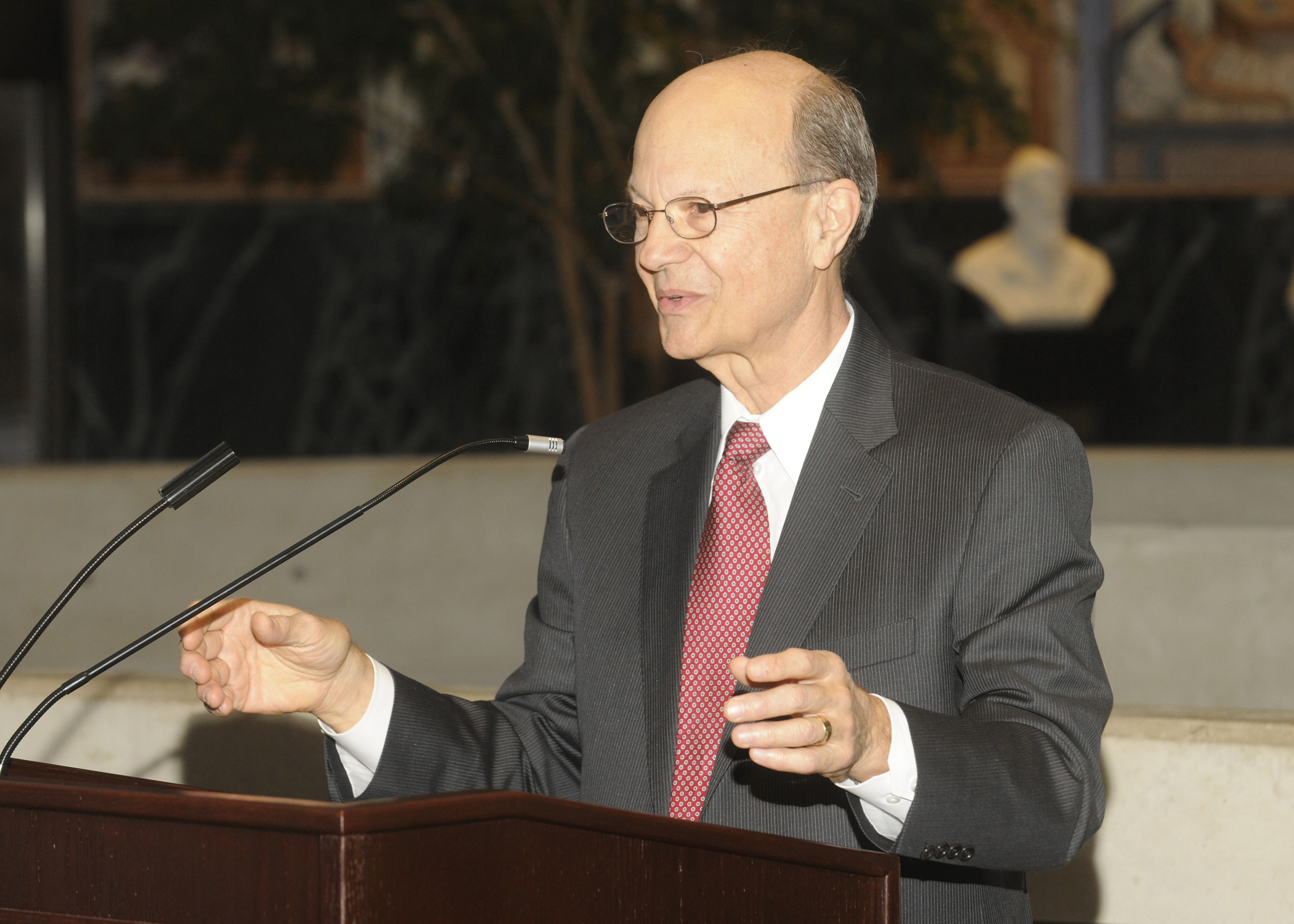The Emory community mourns the passing of Mahlon DeLong, MD, Professor Emeritus and former chair of the Department of Neurology in the Emory University School of Medicine, recognized internationally for his contributions to the field. His pioneering work advancing treatments for patients with advanced Parkinson's disease and other movement disorders is widely celebrated. DeLong passed away peacefully on May 17.
During his tenure as the W.P. Timmie Professor and Chair, DeLong transformed Emory into a globally recognized center for clinical care and research in movement disorders. He built or strengthened clinical programs spanning stroke, epilepsy, neuromuscular disease, Alzheimer’s, and notably, movement disorders. Through his groundbreaking research and its clinical applications, he significantly improved the quality of life for many individuals worldwide.
DeLong made many high-impact scientific discoveries over the course of his career. Prior to joining Emory, he completed groundbreaking physiological studies at NIH and Johns Hopkins University, including the first electrophysiologic recordings from the basal ganglia of primates, and studies that helped to identify the presence of functionally segregated pathways involving the basal ganglia, thalamus and cerebral cortex - areas of the brain responsible for key aspects of the regulation of behavior. This work and related studies provided clear rationale for the use of focal neurosurgical approaches in the treatment of movement disorders including Parkinson’s disease, dystonia, and tremor. Other studies, also at Johns Hopkins, laid the groundwork for the use of acetylcholinesterase inhibitors in Alzheimer’s disease patients.
Shortly after arriving at Emory in 1990, DeLong championed the use of pallidotomy procedures for the treatment of Parkinson’s disease at this institution, guided by his insights into the precise pallidotomy target that would lead to maximal benefits with minimal side effects. The outcome of these procedures, guided by electrophysiological recordings, were remarkable, and neurologists and neurosurgeons from around the world flocked to see the techniques used at Emory. Results from clinical trials at Emory and other institutions demonstrated the short and long-term success of pallidotomy procedures.

DeLong's work paved the way for major breakthroughs in patient care for Parkinson's and other diseases, impacting the lives of people around the world.
Jack Kearse
DeLong also championed dystonia research, serving as the Medical Director of the Dystonia Research Foundation for decades. In addition, he was the Director of the APDA Advanced Center for Parkinson Research at Emory and a co-director and founder of ENTICe (Emory Neuromodulation and Technology Innovation Center). Under DeLong’s leadership, Emory obtained funding for the establishment of a Morris K. Udall Center of Excellence for Parkinson’s Disease Research, at the first time these Centers were offered by NIH.
DeLong received numerous awards for his contributions to the field, including the esteemed Breakthrough Prize in Neuroscience (2014), the Lasker-DeBakey Clinical Medical Research Award (2014, shared with Alim Benabid) and the Taubman Prize for Excellence in Translational Medical Science (2015).
In 2003, DeLong stepped down as chair of the Emory Department of Neurology and continued in his integral role as researcher and physician until 2019. He was a mentor and friend to many current and former Emory faculty members and fellows, and beloved by countless patients of Emory. In 2023, the Department of Neurology started an annual Mahlon DeLong Lecture in his honor. Dr, DeLong will be sorely missed. He is survived by his wife Mary, and numerous children and grandchildren. A celebration of Mahlon DeLong’s life will be planned for the Emory community this fall.

